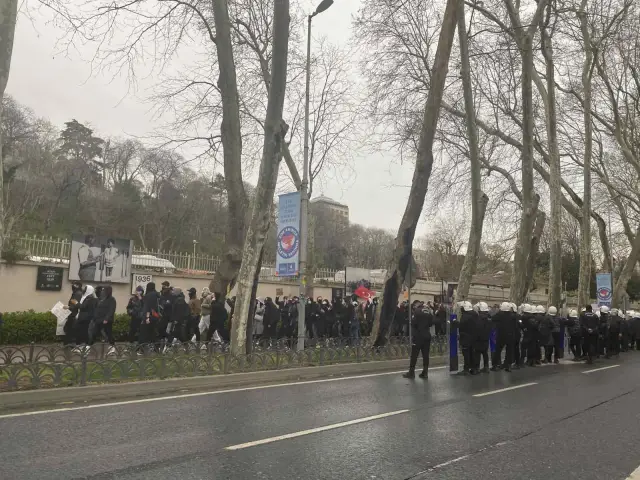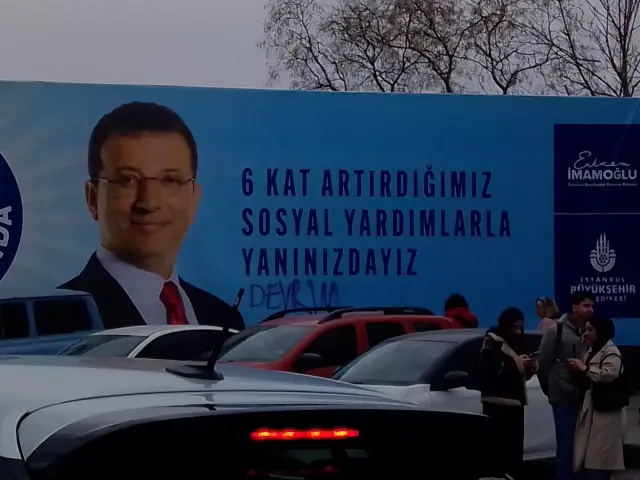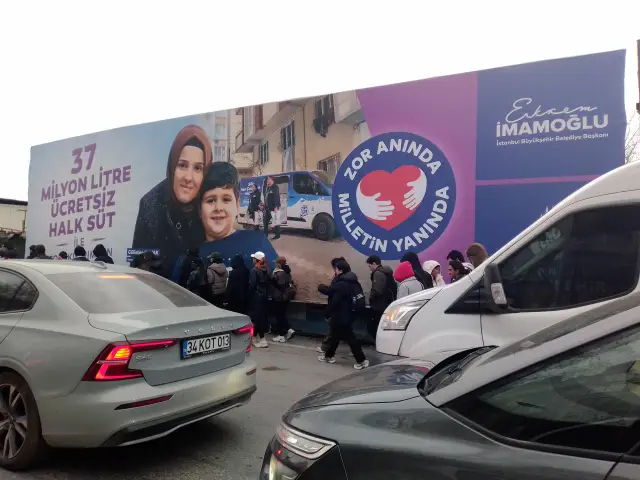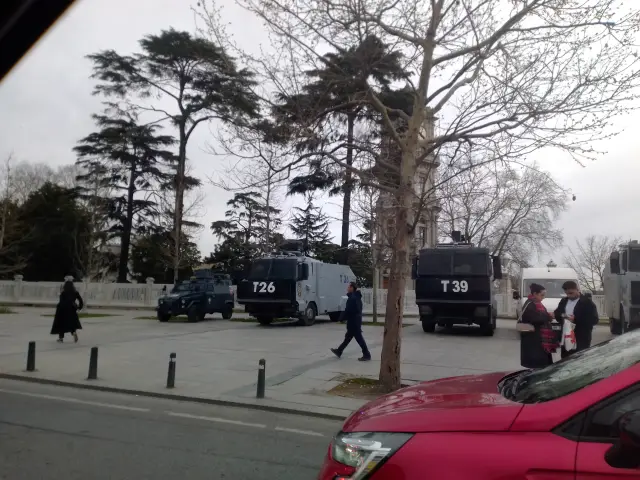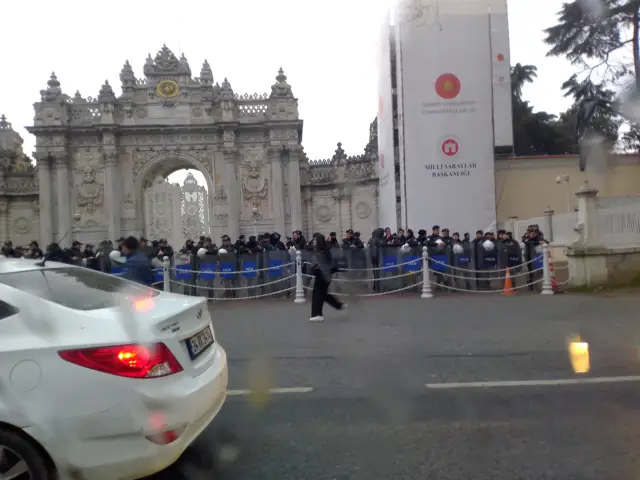After the overthrow of Assad from power in Syria, which happened with the active role of Ankara through the support of the radical Islamists from Hayat Tahrir al-Sham who seized power in Damascus, Moscow did not fail to publish analyses with “Erdogan always has a knife in reserve for the back of some careless partner”. Relations between Russia and Turkey have frozen to the point of freezing. Especially after the attack on the Alawites and Christians in their lands on the Mediterranean coast, when thousands of Syrian civilians died. The bloody pogroms were carried out by radical Turkic-speaking groups that fought against Assad and were cared for by Ankara for years.
Russia announced that its two military bases in Syria have sheltered more than 7 thousand Alawites and Christians. Later, information appeared that Russian military forces were forced to leave the bases and fight with terrorist organizations in defense of Christians and Alawites. We are talking about those two Russian military bases in Syria, which are a concern not only for Turkey, because they remain the last bastion of Moscow's presence, influence and role in the region.
Their closure is the goal of a series of players in Syria who are seeking to sever Russian ties in the Middle East, Africa and the Mediterranean. Moreover, the situation for Russian military bases is becoming problematic after the recent transfer by the Damascus authorities of the largest military base in Syria, Palmyra, to Turkey.
Palmyra is in the center of Syria and this makes it possible to control the entire country, including requesting permission for Russian planes to fly over to Hmeimim, where the Russian base is located. Erdogan's knife in Russia's back again, they say in Moscow.
In this regard, it is no coincidence that during the meeting a few days ago between Turkish Foreign Minister Hakan Fidan and Secretary of State Mark Rubio, there was a statement that “Syria should not be a base for terrorism or a corridor for Iran's destabilizing activities in the region”. The call is “Turkey should support this vision”.
In Ankara, it is accepted that “Turkey and the US will work together against Iran”, but there are also concerns that this is a risk for Ankara. The fact is recalled that Rubio is known for his negative views on Turkey, but now sees Turkey as a partner. A clear signal that Turkey is required to act together with the US in the Middle East again. Turkey is becoming a kind of partner of Washington. At least that's how they interpret the signals in Erdogan's country.
It is probably no coincidence that in Damascus, Sharaa, the interim president, announced the composition of a new government with a message for a united Syria and activities for reconstruction and development. And with Rubio, Fidan has also agreed on preparations for upcoming visits by heads of state and opportunities for cooperation, including in the field of the defense industry.
Moscow is unlikely to remain delighted with such information. But it "accepts with understanding" Erdogan's phone call with Trump. The definition of Erdogan as a "good leader" and "Turkey is a good country" can also be taken as a diplomatic compliment on the part of the American president. With these words, Trump sent Tom Barrack as the new ambassador to Ankara. But there is no doubt that the "praise for Turkey and Erdogan" will be used as a serious doping to make the authorities in Ankara feel comfortable in the operations currently underway against the protesters and the opposition in the country. At least that is what they write in the pro-government Turkish media.
However, more curious is the subsequent telephone conversation with Putin initiated by Erdogan. Although no longer "my dear friend" for Putin. But with an appeal "we are ready to host negotiations". In order to "achieve a dignified and lasting peace in the Russian-Ukrainian war".
Erdogan has emphasized the importance of cooperation between the two countries, especially in resolving regional issues. He has repeated several times "Turkey can host peace talks if necessary". A mediatory role that Turkey has had before, says Erdogan.
Will Putin decide that it is "necessary"? He accepted the phone call, but the Turkish media do not provide concrete criticism of what the Russian president said. Probably because he was distracted by the information that an Anglo-Saxon film "The Wizard of the Kremlin" is being shot with Jude Law in the lead role. They say that the script is quite positive towards "the wizard". And what Putin said about the meetings in Paris of 30 countries, together with Zelensky, "to do whatever the children want, as long as they do not interfere", does not give much hope for Turkey's acceptance of an important role in resolving the Ukrainian case.
Otherwise, Erdogan is not at all surprising with his tradition of balancing between East and West, in this case between Moscow and Washington, but this time with more favoritism towards Trump. And Moscow has already stated that “whoever rules Turkey, it will be pro-Western”. The signal has been given.
And here the question arises why it is constantly repeated that the priorities of the US have shifted to the Asia-Pacific region. Aren't the bases in Greece and Cyprus vital for the US since the “energy equation in the Eastern Mediterranean” is about to be resolved?
Negotiations on energy resources in this region are gaining momentum and a number of countries, especially the US, are declaring the Eastern Mediterranean a priority. The American energy giant Chevron is exploring new gas fields in the southern part of Crete and is increasing energy competition in the region. The Eastern Mediterranean is the largest source of hydrocarbons in Europe. And that is why the “Eastern Mediterranean agenda is active”, and the day before, Macron held a meeting with the leaders of Greece, Cyprus and Lebanon, but without Turkey, on the topic of “geopolitical balances in the Eastern Mediterranean”.
Macron with ambitions for a leading role, Mitsotakis with claims to be a regional factor, and Tel Aviv with a “double message to Ankara” after a meeting with Mitsotakis in Israel.
Ankara is angry that it is not participating in such meetings and is worried about the fate of the agreements signed with Libya on maritime jurisdiction. Moreover, on March 26, General Haftar met with Macron at the Elysee Palace in France's effort to revive relations with Libya. More precisely, with that part of Libya that is under the control of Gen. Haftar. He wants the Al Vig military base to use it as a transit bridge to African countries.
The idea is to secure a military base through Haftar to counter Russia's influence in North Africa and strike a blow at Moscow. It has taken some African countries from Paris by penetrating the Sahel region and Sub-Saharan Africa. In fact, this is a complement to France's efforts to lead European forces against Russia if the US withdraws from Ukraine. The Al-Wig military base is 500 km from the Niger-Chad border and is seen as a suitable platform for conducting military operations in Sub-Saharan Africa.
It is known that Russia is militarily active in the eastern part of Libya, where it has taken up strategic positions. Its military forces are located in air bases in central Libya, Sebha in southern Libya, Benghazi in eastern Libya and the Maaten al-Sarra base in the south.
Niger, Chad, Mali, Burkina Faso, Senegal, the Central African Republic, and Côte d'Ivoire have expelled French troops and closed military bases. However, according to statements by the leaders of these countries, Paris is mobilizing jihadist terrorist organizations it has created, financing and training them in order to destabilize the countries. After the withdrawal of France and the USA, in their place are now Russian soldiers from “Wagner”, who are now called “African Corps” and are under the direct leadership of the Russian Ministry of Defense.
They say that a new era has begun for the region. However, the fact is that in Libya the important players are Russia and Turkey. Russia is trying to gain more positions on the Mediterranean coast of Libya, which would “encircle Europe from all sides”. That is why Macron is trying to break Russia's influence in Libya and is starting new games in Africa. It is not only Ukraine and the ideas of sending troops from a “coalition of the willing” there together with London.
Is there a chance in the changing Western world and the new winds in Africa and Asia? It is not very certain. What is certain is that neither Russia nor Turkey will back down from their positions in North Africa.
And for Erdogan, the problem remains with the mass protests of young Turks and their parents, who do not accept unjust actions such as the arrest of a competitor, especially if he is charismatic, corruption in the upper echelons of power and the lack of media freedom.
The war of attrition is ahead, but the future is undoubtedly on the side of the young. Whenever it is. Otherwise, Erdogan is more convenient, even for Moscow. They just know him well.
